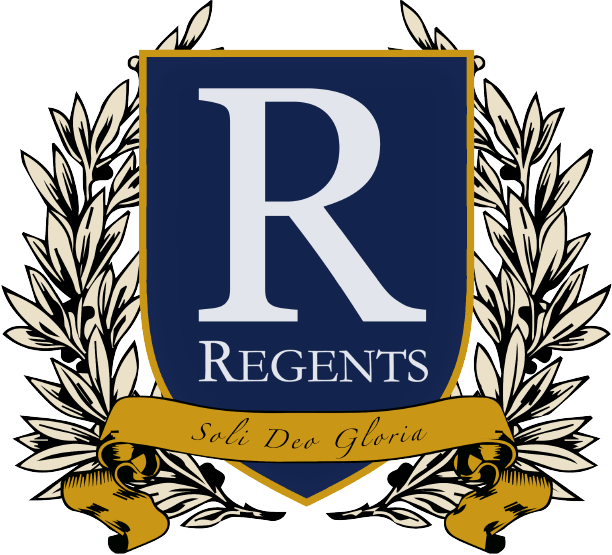
© 2026 Regents School of Charlottesville.
Written by Jackie Jamison
Although I last took a college class more than two decades ago, I want to tell you about an element of Regents’ literature program that has personally affected my own reading and thinking life over the last year: the Commonplace Book. A commonplace book is, at its heart, a personal anthology. It is a notebook in which students - of all ages! - record quotations, Scripture, poetry, reflections, and insights from their reading and experiences.
This is not a diary or journal of emotions, but rather a curated collection of ideas worth remembering. The practice dates back to ancient scholars such as Seneca and became popular in the Rennaissance through the 1800s. Thomas Jefferson was, unsurprisingly, a notable proponent of the practice. Writing down and reflecting on what is worthy of remembrance is a way to make it your own; digesting information in this way is what propels intellectual growth and creativity. Another distinctive of a Commonplace Book is creating headings on the pages (and eventually, an index at the end) so it becomes easy to refer back to topics and reflections over many years.
Commonplace Books at Regents
The process of keeping a commonplace book slows students down in an age of distraction. It invites attentiveness to what has stirred wonder, conviction, or delight and helps students develop the discipline of reflecting on ideas and watching for themes of interest across spans of time. Writing a passage by hand forces the student to dwell upon it—to linger with meaning, structure, and beauty. Over time, these collected thoughts form a treasury of wisdom to revisit and reflect upon. Years later, when a student pages through an old commonplace book, he or she can trace the journey of intellectual and spiritual growth.
Teachers guide this habit by helping students identify “commonplace-worthy” moments in their reading. In younger grades, this might include a line from a Psalm, a noble act from a story, or a striking metaphor from poetry. In upper school, students may add passages from philosophy, history, or theology. The commonplace book can also become a source for essays, speeches, or Socratic discussions, since students have already gathered a wealth of ideas thoughtfully chosen and personally meaningful.
Ultimately, the commonplace book embodies one of the central aims of classical education: to cultivate wisdom and virtue through the love of what is beautiful and true. Proverbs 2:2–5 exhorts us to “incline your ear to wisdom, and apply your heart to understanding… then you will understand the fear of the Lord and find the knowledge of God.” The commonplace book helps students do just that—turning learning into a lifelong habit of reflection, gratitude, and wonder.
Although I have aged out of the classroom decades ago, I have been so inspired by my children’s Commonplace Journals and by Dr. Angel Adams Parham's training for teachers on the subject that I began the practice as well. Perhaps it is time for all of us—teachers, parents, and students alike—to begin a commonplace book of our own. Start with a simple notebook and a pen. Record the words that move you, the verses that shape you, the thoughts that challenge you. Join me in this ancient and beautiful practice, and together let us rediscover the joy of reading, marking and inwardly digesting what is truly worth keeping. -Jackie Jamison
Recommended Reading
How to Make a Commonplace Book (CiRCE Institute) — a concise, hands-on guide to getting started with headings, indexing, and workflow ideas. CiRCE Institute
Commonplace Books: Creative Note-Taking Through History (Forte Labs blog) — traces how the practice served as a precursor to modern personal knowledge systems with neat examples of Commonplace Books from John Locke, Emerson and more. Forte Labs
Resources for Building an (un)Commonplace Book (Kate Milford) — creative and flexible inspiration for how the form of a commonplace book can bend to suit the user.